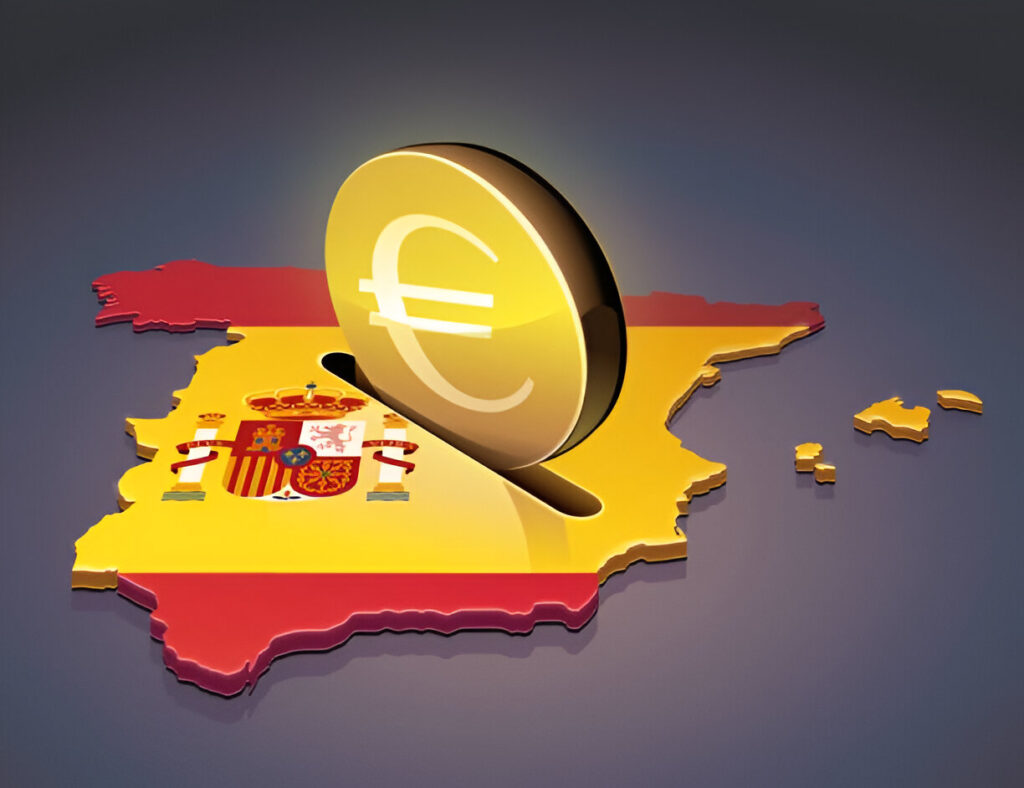Why Can Buying a Business in Spain Be a Smart Decision?
Buying a business in Spain is a big step for entrepreneurs, whether they are locals or international investors.

In recent years, Spain has become a popular destination for those looking to either expand their existing companies or start a new venture. With its vibrant economy, strategic location in Europe, and welcoming business environment, it offers numerous opportunities. But what does it take to purchase a business in Spain, and what should you know before diving into this venture? Let’s break it down step by step.
Why Is Buying a Business in Spain an Attractive Option for Entrepreneurs?
Spain is quickly becoming a top destination for entrepreneurs looking to buy an established business or start something new. The country offers a perfect blend of economic opportunities, strategic advantages, and an appealing lifestyle. If you’re considering making a business investment, Spain has several key factors that make it an attractive option for both local and foreign entrepreneurs.
Growing Economy and Stable Market
One of the biggest reasons Spain is so attractive to entrepreneurs is its growing economy and stable market. Despite past economic challenges, Spain has seen consistent growth in recent years. The country has bounced back with a diversified economy that isn’t solely reliant on any one industry. Sectors like tourism, agriculture, real estate, and tech are booming, offering endless opportunities for business growth. For anyone looking to invest, Spain provides a solid foundation for sustainable success, particularly because of its large and diverse customer base.
Strategic Location for Global Business
Spain’s location is ideal for entrepreneurs who have global ambitions. Situated between Europe, Africa, and Latin America, Spain is a natural hub for businesses looking to operate internationally. This strategic position provides:
- Easy access to markets across three continents.
- Making it a key player in logistics.
- Trade.
- Import/export industries.
Suppose you want to expand your business reach. In that case, Spain’s location gives you access to a wide variety of markets and customer bases without the need to set up multiple operations around the world.
Government Support and Incentives
Spain’s government is actively encouraging entrepreneurship and foreign investment through various incentives. These include tax breaks, financial grants, and simplified processes for starting or purchasing businesses, especially for non-EU residents. Spain’s startup visa program also makes it easier for foreign entrepreneurs to move to the country and start a business without being burdened by bureaucracy. Regions within Spain often offer additional perks for specific industries, so depending on what field you’re interested in, you may find extra support from local authorities as well.
Lower Operating Costs Compared to Other European Countries
While many European countries are known for their high operating costs, Spain offers a more affordable alternative. Rent, utilities, and labor costs are generally lower in Spain compared to countries like the UK, France, or Germany. This means that whether you’re looking to buy an office, hire staff, or manage overhead costs, you’ll find that your money stretches further in Spain. Lower operating costs mean more room for profit and growth, making it easier for entrepreneurs to get off the ground and stay competitive.
High Quality of Life for Entrepreneurs
Spain is not just a great place for business; it’s also a fantastic place to live. The country’s warm climate, diverse culture, and relaxed pace of life make it a top choice for entrepreneurs who value a work-life balance. You can run your business while enjoying Spain’s world-class beaches, vibrant cities, and delicious cuisine. Plus, the healthcare system is highly rated, and the cost of living is relatively affordable. This makes it easier to focus on growing your business while also enjoying a high quality of life.
What Steps Should You Follow to Purchase a Business in Spain?
Purchasing a business in Spain involves a series of important steps that ensure you’re making a smart investment. From researching the market to finalizing the sale, each phase requires attention to detail. Whether you’re a first-time buyer or have previous experience, understanding the process helps make sure you’re moving in the right direction.
Below are the steps broken down into specific areas to guide you through the entire process:

Research the Market and Choose the Right Business
The first step is to familiarize yourself with the type of business you want to buy and its industry. Spain offers opportunities in various sectors, including tourism, retail, and hospitality, so it’s essential to understand what works best for you. Consider whether there’s growth potential, competition, and whether you have the skills to manage the business.
Seek Professional Help Early On
Legal and financial experts are vital in this process. You’ll want to consult with a lawyer specializing in Spanish business law, as well as an accountant, to go over the company’s financials. They can help spot any potential red flags and ensure the transaction runs smoothly.
Perform a Detailed Due Diligence
Due diligence involves gathering all the important information about the business before making any decisions. This includes reviewing contracts, employee agreements, debts, taxes, and overall financial health. It also includes checking for legal disputes or hidden issues.
Negotiate the Terms and Price
Once you’ve done your research, it’s time to talk numbers. This is where your negotiation skills come into play. The asking price might not be set in stone, so you can discuss terms like payment methods, assets included, or other conditions that might affect the final price.
Finalize the Sale and Transfer Ownership
After agreeing on the price, you’ll need to sign the purchase agreement and take care of any necessary legal paperwork. This includes registering the new ownership with the relevant authorities in Spain. At this point, you’ll also transfer any licenses or permits required to operate the business. Once the paperwork is complete, the company will officially be yours!
How to Handle Legal Aspects When Buying a Business in Spain?
Dealing with the legal side of buying a business in Spain is a crucial step to ensure the transaction is smooth and avoids future complications. Spain’s legal system has regulations that foreign buyers need to be aware of, so it’s important to approach this step with caution. Let’s break down the key legal aspects you should consider:
Hire a Spanish Lawyer
One of the first things you should do is hire a Spanish lawyer who specializes in business acquisitions. They will help you navigate the local laws, ensure all contracts are in order, and protect your interests throughout the process. Working with a local legal expert means you’ll avoid any misunderstandings about Spanish regulations that could affect your purchase.
Conduct a Legal Due Diligence
Legal due diligence involves confirming that the business is legitimate and free of hidden legal problems. This consists in reviewing the business’s contracts, ownership titles, employee agreements, debts, and pending litigation (if any). You’ll want to ensure that the company complies with all Spanish laws and regulations and has no legal disputes that could cause trouble later.
Review Contracts and Agreements
You will likely need to go through several contracts, such as the purchase agreement, employee contracts, and supplier agreements. A thorough review will help you understand your obligations after taking over the business. Your lawyer will assist in making sure that these contracts are fair and don’t hide any surprises, such as unpaid liabilities or restrictive clauses.
Handle Licensing and Permits
Different businesses in Spain require specific licenses and permits, especially in industries like hospitality or retail. Before completing the purchase, ensure that all the necessary licenses and permits are in place and transferable. Your lawyer can help make sure the business complies with these legal requirements so you won’t face issues when running the business.
Register the Business Transfer
Once the purchase agreement is signed and all legal aspects are sorted, the final step is to register the business transfer with the appropriate Spanish authorities. This step is essential to make the transfer official, and it includes notifying relevant bodies, such as tax offices and social security. Once this is done, the business is legally yours!
Can American Companies in Spain Thrive in the Local Market?
For American companies looking to expand into Spain, the main question is whether they can succeed in the local market. Spain offers plenty of opportunities, but there are also challenges to keep in mind. Factors like adapting to local business practices, competition, and cultural differences play a big role in determining the level of success for American firms. Let’s explore the key elements that affect this potential.

Adapting to the Spanish Business Culture
Spain’s business culture is different from the fast-paced, deal-driven environment that American companies may be used to. In Spain, building personal relationships and trust is crucial. The process can be slower, and more emphasis is placed on getting to know your business partners. American companies that can adjust to this approach, focusing on long-term relationships rather than quick deals, are more likely to thrive.
Tailoring to the Local Market and Consumer Preferences
Spain has unique consumer behavior and preferences that may not align with those in the U.S. Companies looking to succeed should pay attention to local tastes, pricing expectations, and the specific needs of Spanish customers. Localizing marketing efforts and making adjustments to product offerings can significantly improve a company’s performance.
Dealing with Spanish Regulations
Entering the Spanish market comes with the challenge of following local laws and regulations. This includes everything from labor laws and tax obligations to operational permits. Navigating these legal frameworks can be complex, and businesses often need help from local experts to make sure they are complying with all the necessary rules.
Competition with Local Businesses
American companies will face competition from established local businesses, many of which have a strong foothold in Spain. To stand out, U.S. companies need to offer something different—whether it’s a unique product, better service, or an innovative approach. The ability to differentiate can be the deciding factor between struggling and thriving.
Leveraging Global Brand Recognition
One advantage American companies often have is strong global brand recognition. This can work in their favor when entering Spain, as consumers might already be familiar with the brand. However, brand recognition alone isn’t enough. Success will also depend on how well the company meets local expectations and delivers value in a competitive market.
What Factors Should You Consider When Looking at Businesses for Sale in Spain?
When you’re thinking about buying a business in Spain, there are several important factors to keep in mind. Purchasing a business is a significant investment, so making sure you’re well-prepared and considering all angles can help you avoid costly mistakes. Here are some key factors that will guide you in making the right choice.
Location of the Business
Location plays a crucial role in the success of any business. Spain has a variety of regions with their economic strengths. For example, Madrid and Barcelona are known for their vibrant economies, while coastal areas thrive on tourism. It’s important to evaluate whether the location aligns with the type of business you’re looking to purchase. A great business idea in the right place can help to succeed.
Financial Health of the Business
Before making any decisions, you’ll want to examine the business’s financials. This includes reviewing profit margins, cash flow, and outstanding debts. If the business is currently struggling, ask yourself if it can be turned around or if it presents too much risk. Getting a clear picture of your financial health ensures you know exactly what you’re buying.
Industry Trends and Market Demand
The industry the business operates in will affect its potential for future success. Is it in a growing sector, or is the market declining? Look into current industry trends, market demand, and whether the business is well-positioned for future growth. A thriving market can mean long-term profitability, while a stagnant industry could limit your potential.
Legal and Regulatory Requirements
Spain has specific legal and regulatory requirements for businesses, which vary by sector. Some industries may require special licenses, permits, or compliance with certain regulations. Knowing these legal obligations before purchasing the business is crucial, as failure to comply can result in fines or even closure.
Potential for Growth and Expansion
Finally, assess whether the business has room to grow. Are there untapped markets, new products, or services that could be added? If the company has potential for expansion, it could lead to increased profits down the road. A company that has plateaued might still be stable, but one with growth opportunities is often a more exciting investment.
Is Purchasing a Business in Spain Similar to Buying in Other Countries?
Buying a business in Spain has some similarities to purchasing one in other countries, but there are also key differences that can impact the process. Every country has its own legal, cultural, and financial landscape, and Spain is no different. Let’s take a closer look at how buying a business in Spain compares to other countries.
Legal Process
Like many countries, purchasing a business in Spain involves legal procedures such as due diligence, contract agreements, and regulatory approvals. However, Spain has its own set of business laws and tax regulations that foreign buyers need to be familiar with. For instance, navigating Spain’s labor laws and employment contracts might be more complex compared to some countries, especially those without the same level of worker protection.
Business Culture and Negotiation Style
Spanish business culture tends to be more relationship-focused than in some countries. In places like the U.S. or the U.K., business deals can be more straightforward and fast-paced. In Spain, however, negotiations might take longer, with more emphasis on personal relationships and trust-building. This means you need to be more patient when working with sellers and partners in Spain.
Financial and Tax Considerations
When purchasing a business in Spain, you’ll need to get acquainted with the tax structure. While taxes on business transactions exist in most countries, Spain has specific rules regarding VAT (Value Added Tax), corporate taxes, and capital gains taxes that differ from other regions. The tax rates and financial reporting requirements can vary, so understanding the local tax system is key to avoiding any surprises down the road.
Licensing and Permits
In many countries, certain types of businesses require specific licenses or permits, and Spain is no exception. However, the types of licenses, how you obtain them, and the level of scrutiny you may face can differ. In Spain, industries like hospitality, retail, and tourism have strict licensing requirements, and transferring these when you buy a business can take time. This aspect may be easier in some countries where fewer regulations exist or where licensing processes are faster.
Language and Bureaucracy
One of the more noticeable differences in buying a business in Spain is the language barrier and the level of bureaucracy. The official language in most business dealings is Spanish, and legal documents are drafted in Spanish. While this is common in other non-English speaking countries, it’s worth noting that understanding the language (or working with a professional who does) is essential. Additionally, Spanish bureaucracy can sometimes move slower than in countries with more streamlined processes, so it’s important to factor in extra time for paperwork and approvals.
What documents are required to purchase a business in Spain?
Buying a business in Spain involves gathering a variety of documents to ensure a smooth and legal transaction. The paperwork helps verify the legitimacy of the company, ensures that the sale complies with local regulations, and protects your interests as a buyer. Here are the key documents you’ll need when purchasing a business in Spain:

Letter of Intent (LOI)
The Letter of Intent is one of the first documents involved in the purchasing process. It outlines the initial terms of the sale, such as the proposed price, conditions, and timelines. While not legally binding, it shows serious interest from both parties and serves as the foundation for further negotiations.
Financial Statements
You’ll want to review at least the last three years of the company’s financial statements, including profit and loss statements, balance sheets, and cash flow reports. These documents provide insight into the business’s economic health and will help you decide if the purchase is worth pursuing. It’s essential to verify the accuracy of these records through an audit or professional review.
Due Diligence Report
Conducting due diligence is a critical step, and this report will detail the business’s current status. It covers everything from financial performance to legal issues, existing contracts, tax history, and employee agreements. A due diligence report helps ensure there are no hidden liabilities or pending lawsuits that could affect the transaction.
Purchase Agreement
The purchase agreement is the most important document in the transaction, detailing the final terms and conditions of the sale. This legally binding contract covers all aspects of the deal, including the purchase price, payment method, assets included, and any warranties or guarantees. Both parties must agree to this before the transfer can occur.
Business Licenses and Permits
You’ll need to check that the business has all the necessary licenses and permits to operate legally in Spain. These may include sector-specific licenses, like those required for restaurants or retail stores. Confirm that these documents are valid and transferable to the new owner.
Employee Contracts and Labor Agreements
If the business you’re purchasing has employees, you’ll need to review their contracts and any existing labor agreements. Spain’s labor laws are protective, and it is essential to ensure that you comply with them. This includes understanding employee rights, wages, benefits, and any pending disputes with workers.
Tax Records
It’s vital to review the business’s tax history, including VAT, corporate taxes, and social security payments. You want to confirm that the company is up to date with its tax obligations and avoid inheriting any outstanding tax debts. A clear tax history ensures you won’t face penalties or fines after the sale.
Intellectual Property (IP) Rights
If the business holds intellectual property, such as trademarks, patents, or copyrights, you’ll need documents proving ownership. Make sure the IP rights are valid and can be transferred as part of the sale. Proper documentation here protects the value of the business’s brand and products.
Shareholders’ Agreement (if applicable)
If the business has multiple shareholders, a shareholders’ Agreement will outline the roles, rights, and obligations of each party. This document is essential if you are buying shares in the company rather than the whole business, as it ensures smooth cooperation between shareholders post-purchase.
Asset Inventory
An inventory of the business’s assets (such as equipment, real estate, and inventory) is crucial, especially if these are included in the sale. This document ensures transparency about what exactly is being transferred and helps prevent any misunderstandings later.
Non-Compete Agreement (Optional)
In some cases, the seller may agree to sign a non-compete agreement, preventing them from starting a competing business for a specified period after the sale. This document protects your investment by limiting competition from the former owner.
How Do Taxes Affect Buying a Business in Spain?
Taxes play a significant role in the process of buying a business in Spain. Understanding the tax implications can help you make informed decisions and avoid unexpected costs. Here’s how taxes affect the purchase of a company and what you need to keep in mind:
Transfer Tax
When you buy a business in Spain, one of the key taxes you’ll encounter is the Transfer Tax (Impuesto sobre Transmisiones Patrimoniales y Actos Jurídicos Documentados, or ITP). This tax is applicable to the transfer of business assets and is usually paid by the buyer. The rate can vary depending on the region within Spain and the type of assets being transferred. It’s crucial to factor this cost into your budget.
VAT on Business Purchases
Value-added tax (VAT) can also impact your purchase. In Spain, VAT is generally applied to the sale of goods and services, but the rules for VAT on business sales can be complex. If the sale is structured as an asset purchase, VAT might be applicable to the assets acquired. However, if it’s structured as a share purchase, VAT usually does not apply to the sale of shares themselves but might still affect other elements of the transaction.
Corporate Income Tax
After buying a business, you’ll need to be aware of corporate income tax (Impuesto sobre Sociedades). This tax is levied on the business’s profits and varies depending on the company’s earnings and whether any tax incentives or deductions apply. It’s important to review the business’s previous tax returns and current tax position to understand the potential tax liabilities you’ll be inheriting.
Capital Gains Tax
Sell the business or its assets in the future. You’ll be subject to Capital Gains Tax (Impuesto sobre la Renta de no Residentes, IRNR, or Impuesto sobre la Renta de las Personas Físicas, IRPF). This tax applies to the profit made from the sale. The rate and amount of capital gains tax depend on various factors, including the length of time you’ve owned the business and the nature of the assets.
Local Taxes and Fees
Depending on the location of the business in Spain, additional local taxes or fees may need to be considered. These can include municipal taxes or local business licenses. Each region may have its own specific tax requirements, so it’s important to understand the local tax landscape where the business is based.
Tax Deductions and Incentives
Spain offers certain tax deductions and incentives that could benefit your business after the purchase. These might include deductions for investment in assets, research and development, or hiring employees. Being aware of these incentives can help you reduce your overall tax burden and improve the business’s financial outlook.
Due Diligence for Tax Liabilities
Thorough due diligence is essential to uncovering any existing tax liabilities or issues. This involves reviewing the business’s tax history, checking for any outstanding tax debts, and ensuring that all previous tax returns and payments are up to date. A clear understanding of the business’s tax position helps prevent unexpected financial surprises.
Professional Advice
Given the complexity of Spanish tax laws, seeking advice from a local tax advisor or accountant is highly recommended. They can provide detailed insights into the tax implications of your purchase, help you navigate the tax system, and ensure compliance with all relevant tax regulations.
In summary, taxes play a crucial role in buying a business in Spain. From transfer taxes and VAT to corporate income tax and potential capital gains taxes, understanding these elements and seeking professional advice can help you manage the financial aspects of your investment effectively.
How Can You Ensure Success When Setting Up a Business in Spain?
Setting up a business in Spain can be a promising opportunity, but to achieve success, it’s essential to approach the process strategically. Here’s how to lay a solid foundation and increase your chances of thriving in the Spanish market.
Research the Market Thoroughly
Before starting the business, research the Spanish market. This means getting to know local consumer habits, industry trends, and competitors. Conduct surveys, analyze market reports, and explore your target demographic. This information helps you tailor your business strategy to meet local demands and stand out from the competition.
Create a Detailed Business Plan
A comprehensive business plan is crucial for success. Outline your business model, target market, financial projections, and marketing strategies. This plan acts as a roadmap, guiding your decisions and actions. It’s also a valuable tool for attracting investors and securing financing, as it demonstrates that you have a clear vision and strategy for your business.
Choose the Appropriate Legal Structure
In Spain, businesses can operate under different legal forms, such as sole proprietorships, limited liability companies (SL), or public limited companies (SA). Each has its implications for liability, taxation, and management. Select the structure that best aligns with your business goals and consult with a legal expert to ensure you’re meeting all Spanish legal requirements.
Adhere to Local Regulations
Compliance with local regulations is vital. This includes adhering to tax obligations, labor laws, and industry-specific regulations. Register your business with the appropriate authorities, secure necessary permits, and follow local labor laws. Ensuring that you meet all legal requirements helps avoid potential legal issues and fines.
Build a Strong Network
Networking is important for establishing your business in a new market. Connect with local business associations, industry groups, and potential clients. Building relationships with other professionals can provide valuable insights, opportunities for collaboration, and support as you navigate the business landscape in Spain.
Develop a Local Marketing Strategy
To effectively reach your target audience in Spain, create a marketing strategy tailored to local preferences. This might involve translating your marketing materials into Spanish, adjusting your advertising approach, and using local media channels. A marketing strategy that resonates with Spanish consumers can significantly enhance your business’s visibility and appeal.
Secure Adequate Financing
Ensure you have the necessary funds to start and sustain your business. This might involve personal investment, loans, or seeking investors. Having a clear financial plan and understanding your funding options can help you manage your budget effectively and cover startup costs.
Hire Local Talent
Hiring local employees can provide you with valuable insights into the Spanish market and help bridge any cultural gaps. Look for skilled professionals who understand the local business environment and can contribute to your company’s growth. Building a team with local expertise can enhance your business operations and customer relationships.
Monitor and Adapt
Once your business is up and running, continuously monitor its performance. Track financial metrics, customer feedback, and market trends. Be prepared to adapt your strategies based on what you learn. Flexibility and responsiveness to changing conditions can help you stay competitive and achieve long-term success.
By thoroughly researching the market, creating a solid business plan, complying with local regulations, and building a strong network, you set yourself up for success in Spain. These steps ensure that your business is well-prepared to thrive in the Spanish market.
What Are the Costs Involved in Buying a Business in Spain?
Buying a business in Spain comes with a range of costs beyond the purchase price. It’s important to budget for these expenses to ensure a smooth acquisition process. Here’s a breakdown of the various fees you might encounter:

Purchase Price
The purchase price is the most obvious cost and varies greatly depending on the type and size of the business. It can be negotiated based on the business’s financial performance, market conditions, and other factors. Ensure that you conduct thorough due diligence to agree on a fair price that reflects the business’s value.
Transfer Taxes
In Spain, when acquiring a business, you’ll need to pay a Transfer Tax (Impuesto sobre Transmisiones Patrimoniales y Actos Jurídicos Documentados, or ITP). This tax applies to the transfer of business assets and is typically paid by the buyer. The rate can vary by region and is usually calculated as a percentage of the transaction value.
Notary Fees
Spanish law requires certain business transactions to be formalized by a notary. Notary fees are based on the value of the transaction and the complexity of the documents involved. The buyer generally pays these fees, which can vary depending on the notary’s rates.
Legal Fees
Engaging a lawyer who specializes in Spanish business law is essential for navigating the legal aspects of the purchase. Legal fees cover the cost of drafting and reviewing contracts, conducting due diligence, and handling any legal issues that arise. These fees can be significant, so it’s important to factor them into your budget.
Due Diligence Costs
Conducting thorough due diligence involves examining the business’s financial records, legal status, and operational details. You may need to hire accountants, auditors, or other specialists to assist in this process. The costs for these services can add up but are crucial for identifying any potential issues before finalizing the purchase.
Accounting and Tax Advisory Fees
Understanding the tax implications and financial health of the business is key to making an informed decision. Accounting and tax advisory services help you navigate Spanish tax laws, financial reporting requirements, and potential tax liabilities. These professionals can provide valuable insights and ensure compliance with local regulations.
Licensing and Registration Fees
Depending on the type of business, you may need to obtain or transfer specific licenses and permits. This could include business licenses, health and safety certifications, or industry-specific approvals. Fees for these licenses and registrations vary based on the business type and location.
Employee Costs
If the business you’re buying has employees, you’ll need to consider the costs associated with their contracts, salaries, and benefits. This might include severance pay, changes to employment terms, or integrating new staff into your operations.
Office and Facility Costs
If the business includes physical premises, consider costs related to the property. These can include rent, utilities, maintenance, and any renovations needed to update or customize the space. It is essential to ensure the premises meet your business needs and comply with local regulations.
Financing Costs
If you’re financing the purchase through a loan or other means, there will be associated costs such as interest rates, loan fees, and possibly arrangement fees. These costs impact your overall investment and should be factored into your financial planning.
Insurance
Insurance is crucial for protecting your new business from various risks. You may need to purchase insurance policies for property, liability, and employee coverage. Insurance costs vary depending on the business type and the coverage required.
Miscellaneous Expenses
Additional costs arise during the acquisition process, such as translation services for legal documents, administrative fees, or unexpected repairs and adjustments. Setting aside a contingency fund for these miscellaneous expenses can help manage any unforeseen costs.
In summary, buying a business in Spain involves a range of costs beyond the initial purchase price. By planning for transfer taxes, notary and legal fees, due diligence, licensing, employee costs, and other expenses, you can ensure that you are financially prepared for the acquisition and set your business up for success.
If you’re considering buying a business in Spain and need expert legal advice, it’s always best to consult with professionals who understand the complexities of Spanish business law. Marfour International Law Firm specializes in helping international investors and entrepreneurs navigate the legal aspects of business purchases in Spain. Their experienced team can guide you through the process, ensuring all legal requirements are met and that your investment is secure. For more information, visit Marfour International Law Firm’s website or contact their team for personalized assistance.
FAQs About Buying a Business in Spain
Can a foreigner buy a business in Spain?
Yes, foreigners can buy businesses in Spain. Foreign ownership of companies is not restricted, though certain industries may have specific regulations.
Is it easier to buy an existing business or start one from scratch in Spain?
Buying an existing business can be faster and easier because the infrastructure is already in place. Starting from scratch offers more freedom but can take longer to get off the ground.
What types of businesses are most commonly sold in Spain?
Common businesses include restaurants, hotels, retail shops, and tech startups. The tourism industry in Spain is also a significant sector with many opportunities.
Are there any tax advantages to buying a business in Spain?
Yes, Spain offers several tax incentives for business owners, especially in specific regions. It’s recommended to speak with a tax advisor to explore your options.
What’s the average time it takes to buy a business in Spain?
The time varies but generally ranges from a few months to over a year, depending on the complexity of the deal and legal procedures.
Conclusion
Buying a business in Spain can be a rewarding venture if you do your research, understand the legal landscape, and work with local experts. Whether you’re an international investor or a local entrepreneur, the opportunities are abundant. Keep in mind the costs, legalities, and market dynamics to ensure your business venture thrives in Spain.
PURCHASED BUSINESSES in Spain
CLIENTS assisted
%
clients satisfied
WHAT DOES THIS SERVICE INCLUDE?
- Comprehensive legal corporate, labour and tax advice.
- Company corporate due diligences.
- Company accounting and annual balances diligences.
- Drafting of shareholders agreement.
- Signing the purchase deed at the Notary.
- Registering the company at the Companies House.
testimonials
![]()
![]()
MARFOUR HELPS YOU BUY AN ESTABLISHED BUSINESS IN SPAIN
Contact us, and Marfour International Law Firm will help you buy an established company or business in Spain. One of our specialized English-speaking lawyers will contact you immediately. Do not hesitate to send us your enquiry.
Phone: +34 698 917 840
C/ de Bailèn, 36, 4º 2ª Izda, 08010 Barcelona

